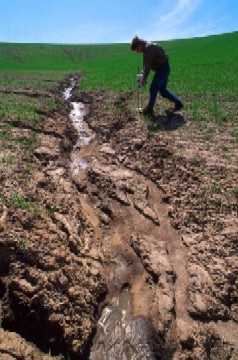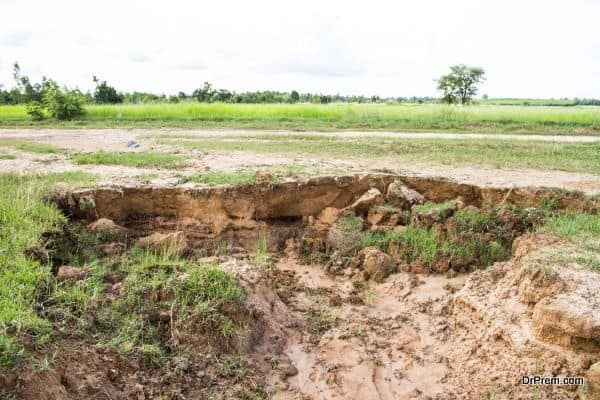Several million tonnes of arable soil is lost to erosion annually. The U.S. Department of Agriculture has revealed that programmes of land stewardship and conservation compliance have played a key role to controlling soil erosion in the USA.
Created in 1985, the latter requires farmers to control erosion on highly susceptible land in exchange for crop supports and other federal farm benefits. Conservation compliance is observed when farmers have USDA approved plans to control erosion. Steps included in this process could include crop rotation, low tillage, and creating grassy buffer strips to capture erosion between fields and waterways.

While this programme has undoubtedly been a success, the Environmental Working Group (EWG) is advocating a stricter enforcement of conservation compliance.
In a recently published report, the Group notes that 1.76 billion tons of soil is lost to erosion each year and
since 1985, mounting scientific evidence has identified runoff of fertilizer and animal manure from cropland as a major source of water nutrient pollution.
EWG argues that given the potential boom in fuel ethanol this is only likely to increase. Thus U.S. farmers should also be required to control soil erosion and fertilizer runoff from all land eligible for federal crop subsidies and to deal with nutrient runoff
associated with the increase in agricultural bio fuels production.
This recommendation is being viewed as a major expansion of the conservation compliance initiative currently in place.
Specifically, the EWG wants greater allocation of funds towards the federal land stewardship and conservation compliance programs:
Conservation compliance is a broad-brush policy instrument and should be seen as requiring a basic measure of pollution prevention on all acres getting subsidies. Conservation compliance will not solve the nation’s agricultural water quality problem but it can reduce the likelihood of pollution and improve water quality.
Along with crop subsidies they have also recommended that a farmers’ eligibility for crop insurance should be determined by the steps taken by the farmer to control runoff.
EWG has also recommended the development of a more comprehensive definition of soil loss which will include study of organic matter in soil and that the USDA should conduct compliance reviews 1 percent of fields subject to conservation compliance per year.



